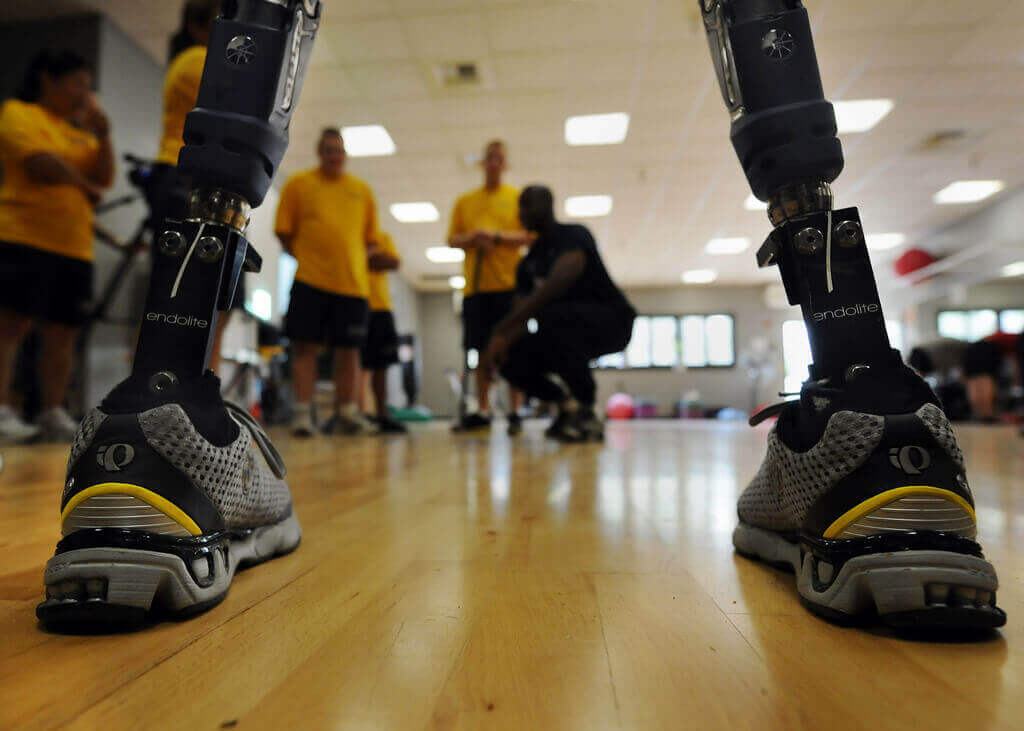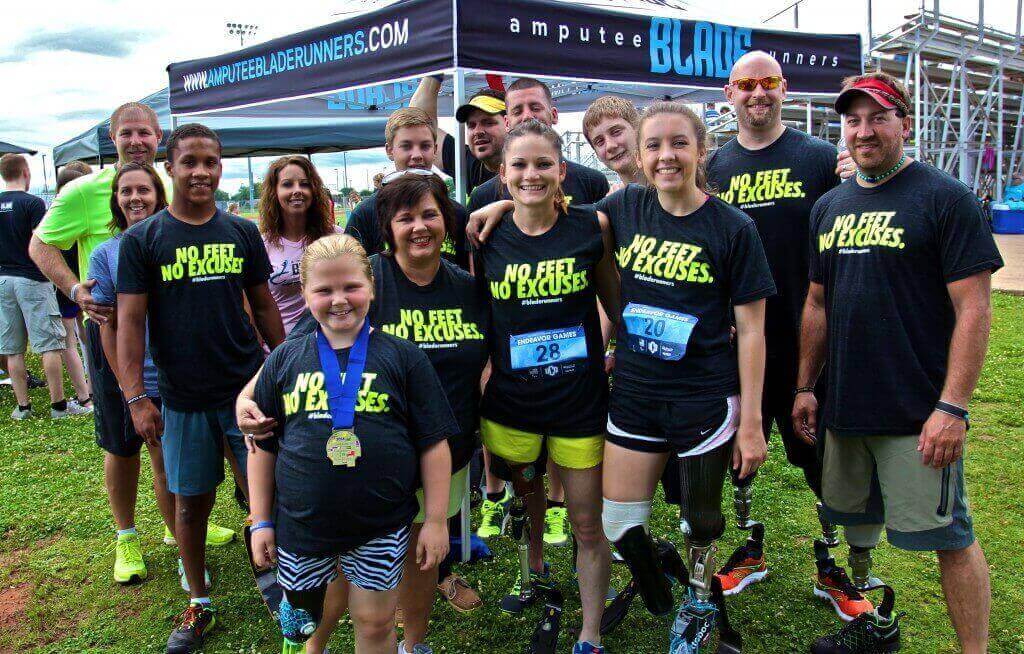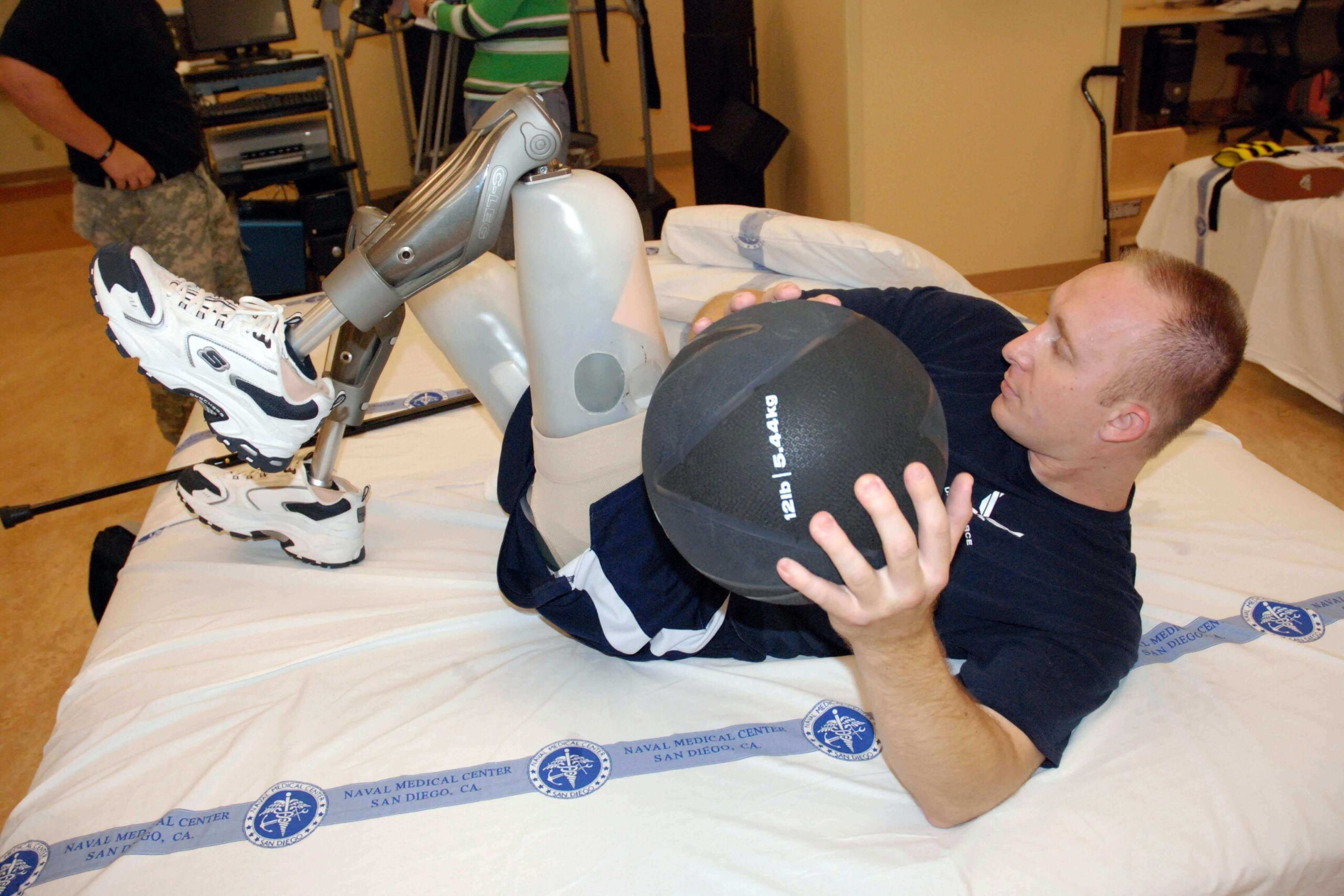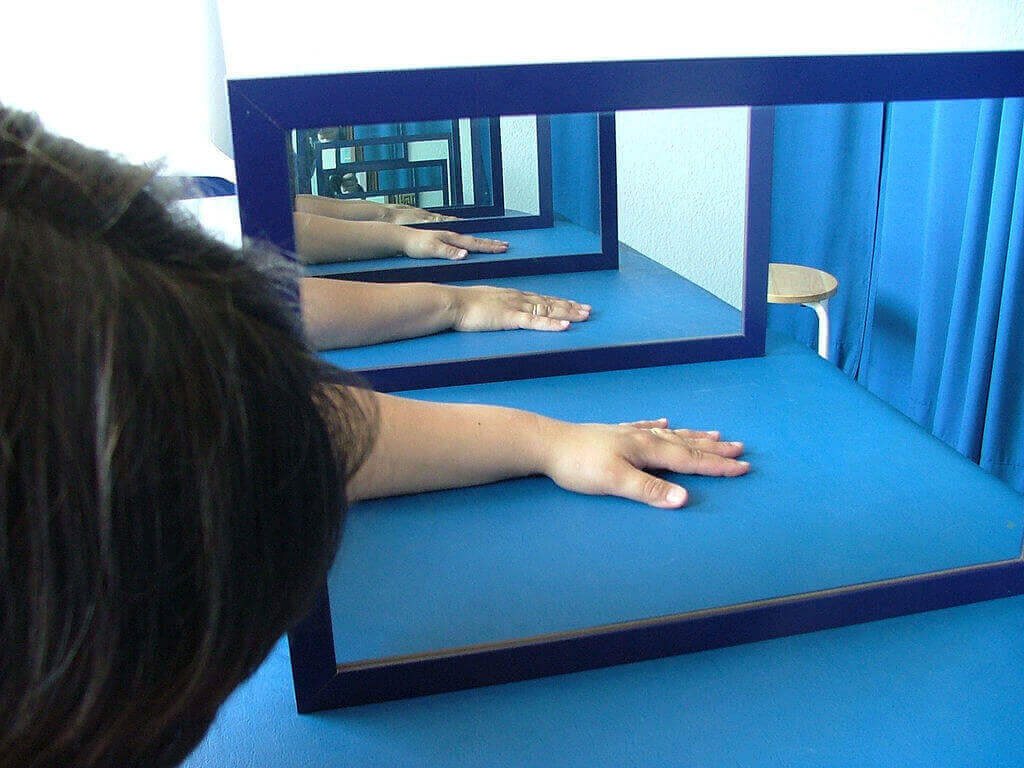
What You Need to Know About Limb Loss and Amputation
Life after an amputation can be difficult, to say the least, especially in the early stages. Amputees often have to relearn how to perform even the simplest of tasks due to the traumatic bodily changes they have experienced as a result of their limb loss. This process can be overwhelming at times, causing patients to develop anxiety, depression, and overall mental and emotional fatigue.
Have you suffered the devastating loss of a limb? Our California catastrophic accident lawyer can help. You may feel as if a happy and fulfilling life is no longer possible – and understandably so. An amputation is life-changing after all. However, it is NOT life-ruining. It IS still possible for you to lead a happy and fulfilling life. You can start taking a proactive role in your recovery by implementing the following tips. They are essential keys to living successfully as an amputee.
- Keep your healthcare team informed of your status. Tell them about any changes in your activities, diet, pain, residual limb, or emotions. What may seem unimportant to you may actually be quite significant. It is important that your healthcare team catches a problem early. This way, they’ll have a better chance of resolving it with minimal pain and expense.
- Establish reasonable goals. It’s an unavoidable fact that your recovery will take time, so it is best to be patient. Rather than set complex goals right off the bat, set smaller, achievable goals on a day-to-day basis, and accomplish them with help from your rehab team. As your strength and abilities improve, you can ramp up your goals accordingly.
- Develop new habits. It is important that you take care of your residual limb if you want to prevent skin breakdown problems that could lead to severe pain and even life-threatening infections. This means washing your residual limb and performing skin checks every day. These activities can become ingrained as habits if you perform them consistently and devotedly.
- Talk with your physician about starting a new fitness regimen. By keeping your body in tip top shape, you will improve not only your physical condition but also your emotional outlook and overall quality of life.
- Be mindful of your position. If you stay in the same position for too long, your body will start to conform to that position. It is important that you periodically shift and stretch your body in different directions. Keep a timer if necessary.
- Practice energy conservation. Don’t take on larger projects all at once. Rather, separate them throughout the day with rest periods in between. Also, use a wheelchair when you’re travelling long distances, even if you use prostheses. This way, you’ll have some energy left when you reach your destination.
- Get support from other amputees, friends, and family. They can help you with your physical, emotional, and mental needs. Just don’t isolate yourself, whether it’s out of pride, shame, or something else. It’ll make life much easier if you learn to depend on others from time to time.
- If you smoke, quit, especially if you have diabetes or vascular disease. Blood and oxygen flow to your extremities is essential to the healing process. You know what reduces blood and oxygen flow? Cigarettes. Be smart and stop smoking.
- Maintain a positive attitude. You will experience some dark days – that’s for sure. Just don’t forget to see the good as well as the bad. As long as you maintain hope, you will be inspired to make the most out of your life.
Are You Considering Amputation?
People who suffer catastrophic damage to a body part face very limited options. They can undergo multiple surgical procedures, such as skin, muscle, and bone grafts, to repair the damaged limb in piecemeal fashion, and then hope and pray for recovery, while potentially dealing with persistent debilitation and pain. Or, they can elect to get an amputation, which presents a threshold to new possibilities – a first step towards functional mobility – yet also entails dramatic anatomical adjustment and consequential lifestyle changes. It’s a decision no one should have to make, but the unfortunately reality is that thousands of people are forced to make it every year.
The good news is that it is now easier than ever for amputees to lead independent and fulfilling lives, thanks to recent advancements in medical science and technology. However, an amputation is still a major procedure that should never be taken lightly due to its irreversible nature, and individuals confronting the decision to amputate should thoroughly evaluate their case with input from trusted peers and qualified medical professionals.
If you are facing this difficult conundrum, it is highly advised that you consider the following factors before making your final decision:
- Is it infected? If your injury has led to an infection, you may need to get the affected body part amputated before the infection spreads further, potentially causing severe sepsis.
- How functional is the limb? It is possible to “salvage” a seriously damaged limb, but total recovery of function is extremely rare. Most patients are left with a partially functioning limb. Some are left with complete dead weight. It is up to you to assess your circumstances and weigh the pros and cons of either decision.
- Are you in constant pain? If you’re considering an amputation due to chronic pain, know this: pain after amputation is very unpredictable. In other words, an amputation does not guarantee a solution. Approximately 15 percent of amputees suffer really severe pain, while many more experience pain at moderate levels. Your chances of enduring pain after an amputation are higher if you have reflex sympathetic dystrophy (RSD) or joint pain.
- How much of your body are you willing to sacrifice to save the limb? If you decide to salvage your limb, you will likely have to sacrifice other parts of your body for graft operations, whether it be skin, bone, or muscle. Furthermore, this process can take several months to complete – and success is far from guaranteed. Past a certain point, it may be best to abandon limb-salvage in favor of amputation.
In either case, you will likely face exorbitant medical expenses, lost earnings, pain and suffering, and other physical, mental, emotional, and financial damages. If you suffered your injury in a traffic collision caused by another party, please don’t hesitate to contact Wilshire Law Firm and get the justice you deserve with help from our tenacious personal injury attorneys. We fight hard to get our clients the compensation they deserve and need to get on the road to recovery. For more information about our firm, call us today at (866) 344-0588.

Financial Resources for Patients with Amputations
Amputations can cost tens of thousands of dollars in initial hospital costs, plus tens of thousands of dollars more for follow-up care. Add in the costs of wheelchairs, ramps, prosthetics, and other assistive equipment, and the total expense can easily reach hundreds of thousands of dollars. If you’re like most people, you don’t have this kind of money.
Fortunately, you don’t have to suffer financial hardship in order to get the means needed to maintain your independence. There are a number of organizations that provide financial assistance to amputees. We’ve compiled this list of some of the best available resources. We highly recommend that you contact these organizations to learn more about their specific programs and services, including eligibility criteria.
State and Federally Funded Sources
- Medicare – Medicare Part B (Medical Insurance) covers prosthetic devices needed to replace a body part or function. Ask your physician or supplier to file a claim.
- Medicaid – Prosthetics and rehabilitative services are considered an Essential Health Benefit (EHB) under the Affordable Care Act.
- TRICARE – Active duty and retired uniformed service members and their families can get coverage for prosthetics, prosthetic devices, and prosthetic supplies through this federal healthcare program.
- Veterans Administration – The VA offers rehabilitation and prosthetic services to qualifying veterans with disabilities.
Nonprofit Organizations
- Amputee Blade Runners – This organization’s goal is to help amputees keep an active lifestyle by providing running prosthesis free of charge.
- Challenged Athletes Foundation – The CAF provides athletes with physical challenges grant funding for coaching fees, competition expenses or equipment.
- Limbs for Life Foundation – This global nonprofit organization works to build a financial bridge between low-income amputees and the quality prosthetic care needed to restore their lives.
- National Amputation Foundation – Started by a group of amputee veterans, the National Amputation Foundation donates wheelchairs, walkers, and other medical equipment to any person in need through their Give-A-Way Program.
Services for Children
- Administration for Children and Families – A division of the Department of Health & Human Services, the ACF offers grants for prosthetic devices or Durable Medical Equipment (DME) from time to time. Check their Funding Opportunity Announcements page often to see if a grant is available.
- Shriners Hospital – Shriners Hospital for Children provides free orthopedic care to children under the age of 18.
- Blue Cross Blue Shield – Some BCBS companies provide free or low-cost coverage to children who are not insurable through Medicaid or private insurance.
You Can Also Take Legal Action
If you or a loved one has suffered an amputation injury due to the negligence of another party, you can pursue compensation for the costs of medical treatment, assistive equipment, and other needs by filing a claim or lawsuit. To ensure that you receive the full and fair compensation you are entitled to, consult with the experienced amputation attorneys at Wilshire Law Firm. We can give you a full understanding of your rights and best legal options in a FREE consultation. Just give us a call at (866) 344-0588.
Leg Amputation Recovery and Therapy

Recovery Process After a Leg Amputation
Most patients stay in the hospital until they become comfortable with essential everyday activities – using the restroom, getting up and out of beds/seats, etc. This can take anywhere from three to seven days and, if necessary, a short stay in a rehabilitation unit.
It is absolutely vital that you take an active role in your own rehabilitation. After an amputation, you must prevent your hips from staying in a bent or flexed position. Avoid the following:
- Do not sit in a chair for long periods of time. You need to frequently change the position of your hips.
- Do not place a pillow under your stomach when lying down.
- Do not place your residual limb on a pillow when lying down, unless told to do so by your physician.
- Do not place a pillow under your knees or hips. Do not place a pillow between your thighs.
- Do not place your residual limb over the side of a bed.
After the initial surgery recovery, it is critical to begin the process of adjusting to your limb. For the initial two weeks, stick to massage and wound/incision care. Isometric activities utilizing the muscles above the amputation are also okay.
After the sutures are removed, the wound healed, and your physician gives you the clear to perform more extensive exercises, range of motion for the amputated limb can start. Gradually introduce exercises targeting all your muscle groups. When you flex and extend, do it slowly and carefully, without any weights or pressure.
After around four to six weeks, towel pulls and scale activities (not more than 10-15 pounds) can start, in addition to the range of motion, isometrics, and massage.
After six weeks, you can commence advanced physical therapy.
As for medication, your physician can prescribe you drugs that will help you manage post-operative pain. However, keep in mind that the drugs are there to help you function, not get rid of the pain completely. The length and span of surgical pain differs for every person and can take weeks or months to resolve. Be careful not to develop a physical addiction, especially if you have some form of chronic pain and take the drug regularly. You should bring up any and all of your concerns and questions with your physician.
If you or someone you love has sustained an amputation injury in an accident caused by another party, please don’t hesitate to contact Wilshire Law Firm for immediate assistance. Our experienced California amputation lawyers can help you gain access to the best medical care available as well as get you compensation for lost wages, pain and suffering, and more. To learn more about what our firm can do for you in a FREE consultation, call us today at (866) 344-0588.

Coping with Phantom Limb Pain
Lingering pain after a surgery is normal. It is part of the healing process and generally goes away with time. However, amputations are another story.
After the initial post-surgical pain subsides, patients often experience what is known as “phantom pain,” a mild to severe pain that feels like it’s coming from the missing body part. While modern medical techniques have significantly reduced the occurrence of phantom pain, between 60 and 70 percent of patients still feel some phantom pain to this day.
The actual figure may be even higher since patients often are reluctant to report it. Even though the pain is very real to them, they can see clearly that their limb is gone, so they fear that their doctor might begin to question their sanity.
But the opposite is true. Physicians today recognize phantom pain as a legitimate condition that originates in the spinal cord and brain, and can actually help amputation patients relieve their phantom pain by finding the treatment that is right for them.
The success of treatment for phantom pain depends on the patient’s level of pain and the various mechanisms playing a role in causing the pain. Below are some of the most effective ways to treat phantom limb pain.
Medications
Depending on the level of your pain and the various mechanisms causing it, you might be prescribed any of the following medications:
- Acetaminophen and non-steroidal anti-inflammatory drugs (NSAIDs)
- Opioids (narcotic pain medications)
- Antidepressants
- Anticonvulsants
- Beta-blockers
- Muscle relaxants
In order to find the combination of medications that works for you, consult with your healthcare provider and give him or her information about your pain – the more, the better.
Non-Medication Treatments
The following alternative/complementary treatment techniques can be helpful for the reduction of phantom limb pain:
- Acupuncture
- Massages
- Mirror box therapy
- Local injection therapy
- Deep brain stimulation
- Nerve cuff stimulation
- Virtual reality therapy
- Imagery
- Music
Again, consult with your healthcare provider to determine what’s right for you. The more you work with him or her, the more effective and comprehensive your pain management plan will be.
Amputation Injuries Due to Auto Accidents
In the United States, approximately 1 in 200 people has had an amputation, according to the National Limb Loss Information Center. Auto accidents are among the top causes of “traumatic amputations,” or the loss of a limb or digit in an accident.
While the metal body of a vehicle primarily serves as a protective barrier for passengers, they can turn harmful in a serious crash, cutting or even crushing body parts. Sometimes, the damage can be so great as to make reconstruction. In such cases, surgical amputation may be required to prevent further damage or to save the victim’s life.
Unlike cuts and broken bones, amputations cannot be healed or reversed. Because of this, they almost always change the lives of those who undergo them. When a person sustains a traumatic amputation, he or she may be affected in the following ways:
- Loss of mobility
- Loss of ability to perform job duties due to the loss of an essential digit or limb
- Loss of ability to perform daily tasks
- Residual pain that originates in the remaining part of the limb
- Posttraumatic stress disorder (PTSD), depression, and anxiety
An amputation can result in extensive medical treatment and rehabilitation, the costs of which can be exorbitant. In more severe cases, the victims may lose out on a lifetime of potential earnings, and even have their whole home retrofitted so they can carry out daily tasks independently or with minimal assistance. The total damages can reach staggering amounts – it’s not uncommon for traumatic amputation cases to involve millions of dollars in recovery.
Have you suffered an amputation as a result of any of the following scenarios?
- Car collision
- Pedestrian accident
- Motorcycle crash
- Bus accident
- Truck accident
If so, you may be entitled to compensation for medical expenses, lost earnings, pain and suffering, and more. However, you probably won’t get the full and fair compensation you deserve without a fight.
What Is the Average Lifetime Cost for Amputation Patients?
You’ve suffered a serious injury in an accident, and your medical provider has informed you that you have little choice but to undergo an amputation. Thoughts about your family, your hopes and dreams, and your quality of life are racing through your mind. Your finances? You probably feel like they are among the least of your worries. Or perhaps the prospect of amputation is difficult enough without having to think about the possibility of bankruptcy. However, that possibility may be very real.
According to widely cited study by the John Hopkins Bloomberg School of Public Health, in 2002, the projected average lifetime cost for amputees was more than $509,275 in 2002, or $673,290 when adjusted for inflation. This is approximately triple the average lifetime cost of limb reconstruction.
The study calculates costs for:
- Both initial and subsequent hospitalizations
- Inpatient rehabilitation
- Outpatient visits to physicians
- Outpatient physical and occupational therapy
- Prosthesis purchase and maintenance expenses
The study did not take into account other damages associated with amputation, such as lost earnings, pain and suffering, and reduced quality of life.
If your medical expenses are piling up and you’re deep in debt, do not be afraid to turn to others for help. There are many nonprofit and government organizations as well as fundraising possibilities you can turn to; it’s a question of finding the method that works best for you. It is highly recommended that you also seek out professional assistance with your finances: consult with a credit counselor to help you reduce debt, a financial advisor to help you find the best sources of income, and so on.
There is one other way to get coverage for your amputation costs. California law allows victims of traumatic amputation caused by others’ negligence or recklessness to pursue monetary compensation through a lawsuit. If this applies to you, contact an experienced personal injury lawyer to file a legal claim. With the right law firm at your side, you can be made whole again financially.
At Wilshire Law Firm, our excellent legal team has helped countless amputation injury victims throughout California get the compensation they need to put their lives back together. Since 2007, we have achieved over $100 million in settlements and verdicts on behalf of our clients. With our guidance, you may recover hundreds of thousands, even millions of dollars in damages. Call us at (800) 522-7274 to learn more about your rights and legal options in a FREE consultation. The sooner we start on your case, the better.
Frequently Asked Questions About Amputation
An amputation is life-changing. If you have been or will soon be amputated as result of an accident, you probably have many questions about your recovery and your future. Below are answers to key questions provided by the experienced amputation attorneys at Wilshire Law Firm. If you have any specific questions about your case, feel free to call us toll-free at (866) 344-0588 for answers. We offer FREE comprehensive case consultations.
Q: My doctor has urged me to undergo an amputation. Will I be able to maintain the same quality of life I had before?
A: Not all amputations are the same. Obviously, having multiple limbs amputated will present more challenges than losing a single limb. Also, some types of amputations are worse than others. For instance, most people would prefer to have their lower extremities rather than their upper extremities amputated, because people rely on their hands for almost everything.
Whatever the case, the unfortunate fact is you will face new difficulties in life due to your amputation.
But that doesn’t mean you won’t be able to enjoy a fulfilling, happy life.
Thanks to modern technological improvements, amputees today can lead normal lives and even participate in the activities they enjoyed before their amputation. It’s not unheard of for amputees to play sports and even resume their job duties with help from prosthetics and other medical innovations.
Q: I sustained an amputation due to someone else’s negligence. How can a personal injury lawyer help me get my life back together?
A: If you have sustained an amputation injury in an accident, you may pursue compensation from the liable party for your damages. However, it won’t be as simple as filing a claim and getting the settlement you deserve. Since you are the party asserting the injury claim, also known as the plaintiff, the burden of proving negligence and damages will be on you.
An experienced personal injury attorney can help you shed light on your story and impress upon the jury, judge, insurance adjustor, and defense attorney that you are an honest individual deserving of full and fair compensation.
At Wilshire Law Firm, our legal team is comprised of professionals who are skilled negotiators, thorough investigators, and convincing orators who regularly achieve high value settlements and verdicts on behalf of our clients. We take an out-of-the-box approach in our work as we come up with effective and well supported theories to buttress our clients’ claims and gain as close to a damages windfall in their favor as possible.
Q: What damages may I recover in my amputation case?
A: Depending on the circumstances surrounding your accident, the following types of compensatory awards may be available to you as a matter of law, but only upon reasonable proof:
- Past and future medical expenses
- Past and future wages and income losses
- Reduction of earnings from disability
- Costs of prosthetics, handicap friendly living accommodations, transport vehicles for amputees, and other state of the art devices and tools
- Past, present, and future physical and emotional pain and suffering
- Loss of quality of life
Q: I want to return to my normal life immediately. Why do I have to wait to get a prosthesis?
A: It’s great that you want to resume an active life, full steam ahead, but it may take months before you’re ready for your first prosthetic fitting.
Amputation is a traumatic experience for the body and mind. You’ll have to go through extensive rehabilitation before you’re physically and mentally prepared to even attempt resuming an independent life. You will also have to acquire the basic skills and knowledge on how to take care of your residual limb and overall health.
Even after you get your first prosthesis, it’s likely to only be a temporary one. As time passes, your residual limb will change in size and shape, and you will have to wait for it to stabilize before getting your permanent prosthesis.
The process may be long and frustrating, but it’ll be worth it in the end.
Since 2007, Wilshire Law Firm has been dedicated to protecting the rights of injured victims throughout California. As aggressive legal advocates, we know that you need ample monetary compensation for your losses, and will do everything without our power to help you get it. Nothing can restore your limbs, but you can at least lessen the costs of care and even gain access to the most advanced medical technologies out there by taking legal action. For more information about your rights and best options, contact our offices today.
Contact our California Catastrophic Injury Lawyer Today
If your amputation injury was caused by another party, you may be eligible for hundreds of thousands, even millions of dollars in compensation for medical bills, rehabilitation costs, lost earnings, pain and suffering, and more. Contact Wilshire Law Firm to learn more about your legal rights and options. We offer FREE consultations.
Don’t let the insurance company bully you into an unfair settlement. We will develop a solid case that details your current and projected expenses and financial needs. Then we will leverage this information in negotiations with the insurance company to net you a much higher settlement than initially offered. If negotiations fail, however, our aggressive trial lawyers are willing to take matters to court. Whatever it takes, we will secure you a better future.
To learn more about what our firm can do for you in a FREE consultation, call us today at (866) 344-0588.











